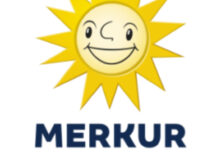Football clubs that opt for a gambling sponsor are losing out on shirt sales, new polling carried out by Survation suggests, with more than a third of fans (34%) saying they would not buy their team’s shirt if it had a gambling sponsor displayed. The survey of more than 1,000 football fans, commissioned by Clean Up Gambling as part of the launch of the Coalition Against Gambling Ads, follow reports that Everton and Aston Villa’s shirt sales increased by 60 per cent after ditching their main gambling sponsor.
Despite voluntary measures by the gambling industry, such as the ‘whistle to whistle’ ban on advertising during live sporting events before the watershed, sentiment among football fans is for further restrictions. Two-thirds believe there to be too many gambling ads connected to sports on TV, 59 per cent that there are too many gambling ads in football stadiums, and 58 per cent think too many teams are sponsored by gambling companies [1].
Gambling advertising is expected to form a part of the government’s forthcoming Gambling Act Review. The Coalition Against Gambling Ads brings together Clean Up Gambling, The Big Step, Gambling with Lives, the Royal Society for Public Health, the Gambling Health Alliance, Adfree Cities, GamFam, Stamp Out Poverty and Lewes Football Club. It is calling on the government to end all gambling advertising, promotion and sponsorship – a proposal backed by a majority of the public [2].
Matt Zarb-Cousin, Director of Clean Up Gambling, said: “The vast majority of football fans think there’s too much gambling advertising, and a huge proportion are put off buying merchandise because of gambling sponsors. The government would have the backing of football fans if it decided to move against gambling ads, and clubs would benefit from an increase in shirt sales.”
James Grimes, who runs The Big Step, said: “The results of this poll confirms what we hear regularly: that fans have had enough of gambling advertising and sponsorship in football. Children shouldn’t be exposed to any gambling promotion while watching the sport they love and that’s why The Big Step is proud stand alongside so many reputable names as part of CAGA.”
Duncan Stephenson, Chair of the Gambling Health Alliance and Deputy Chief Executive of the Royal Society for Public Health, said: “The environment bombards us with adverts encouraging us to gamble, and this is particularly evident in the world of sport. RSPH research found that one in ten young people have been to a stadium sponsored by a gambling operator, and 55% of young people see the relationship between sports and gambling as negative for young people. With other public health issues like smoking we have seen how effective a ban on advertising can be at reducing harm, and the Government is taking note in other areas, with a ban on junk food advertising before 9pm announced in July this year. We should approach gambling in the same way and remove these potentially harmful adverts from what should be an activity that has a positive influence on health and wellbeing.”
[1] Football supporters’ poll by Survation is here [2] Survation’s September tracker poll for Clean Up Gambling found 51 per cent of a representative sample would support an end to all gambling advertising, promotion and sponsorship compared to 22 per cent who would oppose such a ban.




